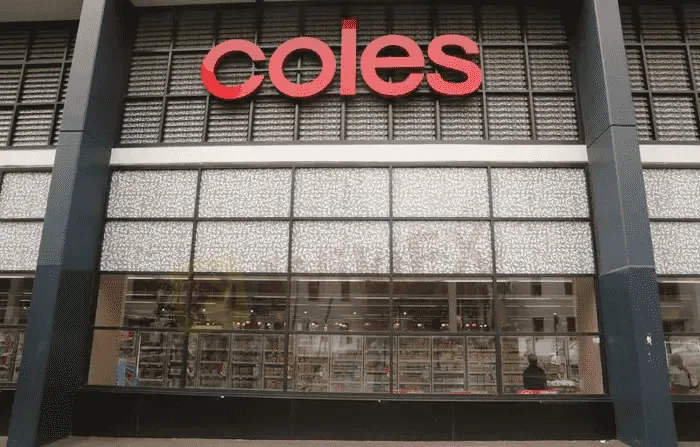简体中文
繁體中文
English
Pусский
日本語
ภาษาไทย
Tiếng Việt
Bahasa Indonesia
Español
हिन्दी
Filippiiniläinen
Français
Deutsch
Português
Türkçe
한국어
العربية
Australia’s Wesfarmers posts annual profit dip, but outlook upbeat
Abstract: Australian retail conglomerate Wesfarmers Ltd posted a 2.9% drop in annual profit on Friday, hurt by COVID-driven store closures, sticky supply chain bottlenecks and rising costs.

Australian conglomerate Wesfarmers Ltd, owner of the countrys no. 1 hardware chain, reported annual profit fell and warned of “challenging” inflation, but said raw materials prices were down while demand was high for home improvement projects.
The outlook issues on Friday shows a company transitioning from one extraordinary challenge to another: during COVID-19 lockdowns its products were in high demand but trading was disrupted, while it now faces soaring materials costs and consumer confidence dented by rising living cost pressures.
Wesfarmers net profit for the year ended June fell 2.9% to A$2.35 billion ($1.64 billion), bettering analyst forecasts of about A$2.2 billion, due to pandemic store closures and restrictions in the first half. Its main earner, the Bunnings hardware chain, raised its profit contribution by 0.9%.
But Australia ended lockdowns in late 2021 and overall profit in the January-to-June half leapt 13% as shoppers rushed back to the companys stores, which also include local versions for Kmart and Target outlets.
Bunnings, an institution in Australian retail, increased sales in the first seven weeks of the financial year that started in July, the company said, without giving more detailed profit guidance.
“The nature of the products in Bunnings, it‘s not all discretionary. There’s a lot of repair and maintenance spend,” said Chief Executive Rob Scott, speaking on a call with journalists.
Wesfarmers had previously reported it was exposed to skyrocketing prices of timber, amid surging global demand, but Scott said the cost of timber and other raw materials like cotton and plastic resin had moderated.
“These decreases in some of the raw materials prices will ultimately start to flow through to consumers over the next six to nine months … but I suspect over the next few months inflation will be a challenge,” he said.
Cost of living pressure also appeared to be benefiting budget department store chain Kmart, which makes about a third of the profit Bunnings generates, as shoppers looked for ways to cut costs.
Shares of Wesfarmers were up 1.7% in morning trading as analysts upgraded forecasts in line with the companys upbeat outlook. The Sydney benchmark was 1% higher.
Wesfarmers “will continue to leverage its scale and sourcing capabilities to manage inflation”, UBS analysts wrote in a research note.
Ord Minnett analysts wrote that it expected investors to up their forecasts for Wesfarmers, although “this may be partly offset by lower Bunnings margins and higher interest costs”.

Disclaimer:
The views in this article only represent the author's personal views, and do not constitute investment advice on this platform. This platform does not guarantee the accuracy, completeness and timeliness of the information in the article, and will not be liable for any loss caused by the use of or reliance on the information in the article.
Read more

Top 10 Trading Indicators Every Forex Trader Should Know
Master the top 10 Forex trading indicators to analyze real-time Forex quotes, trends, and market signals. Learn strategies to boost accuracy and avoid mistakes.

Geopolitical Events: What They Are & Their Impact?
You've heard many times that geopolitical events have a significant impact on the Forex market. But do you know what geopolitical events are and how they affect the FX market? Let us learn about it today.

Why Do You Feel Scared During Trade Execution?
Trade execution is a pivotal moment for traders. It is when analysis turns into action, and potential profits or losses become reality. However, for many traders, this moment is accompanied by fear. Why does this happen, and how can you address it?

WikiEXPO Global Expert Interview: Simone Martin—— Exploring Financial Regulation Change
In the midst of financial innovation and regulation, WikiGlobal, the organizer of WikiEXPO, stays abreast of industry trends and conducts a series of insightful and distinctive interviews on pivotal topics. We are delighted to have the privilege of inviting Simone Martin for an in-depth conversation this time.
WikiFX Broker
Latest News
Volkswagen agrees deal to avoid Germany plant closures
Geopolitical Events: What They Are & Their Impact?
Top 10 Trading Indicators Every Forex Trader Should Know
TradingView Launches Liquidity Analysis Tool DEX Screener
MultiBank Group Wins Big at Traders Fair Hong Kong 2024
WikiEXPO Global Expert Interview: Simone Martin—— Exploring Financial Regulation Change
'Young investors make investment decisions impulsively to keep up with current trends' FCA Reveals
Why Do You Feel Scared During Trade Execution?
CySEC Settles Compliance Case with Fxview Operator Charlgate Ltd
Scope Markets Review: Trustworthy or Risky?
Currency Calculator


